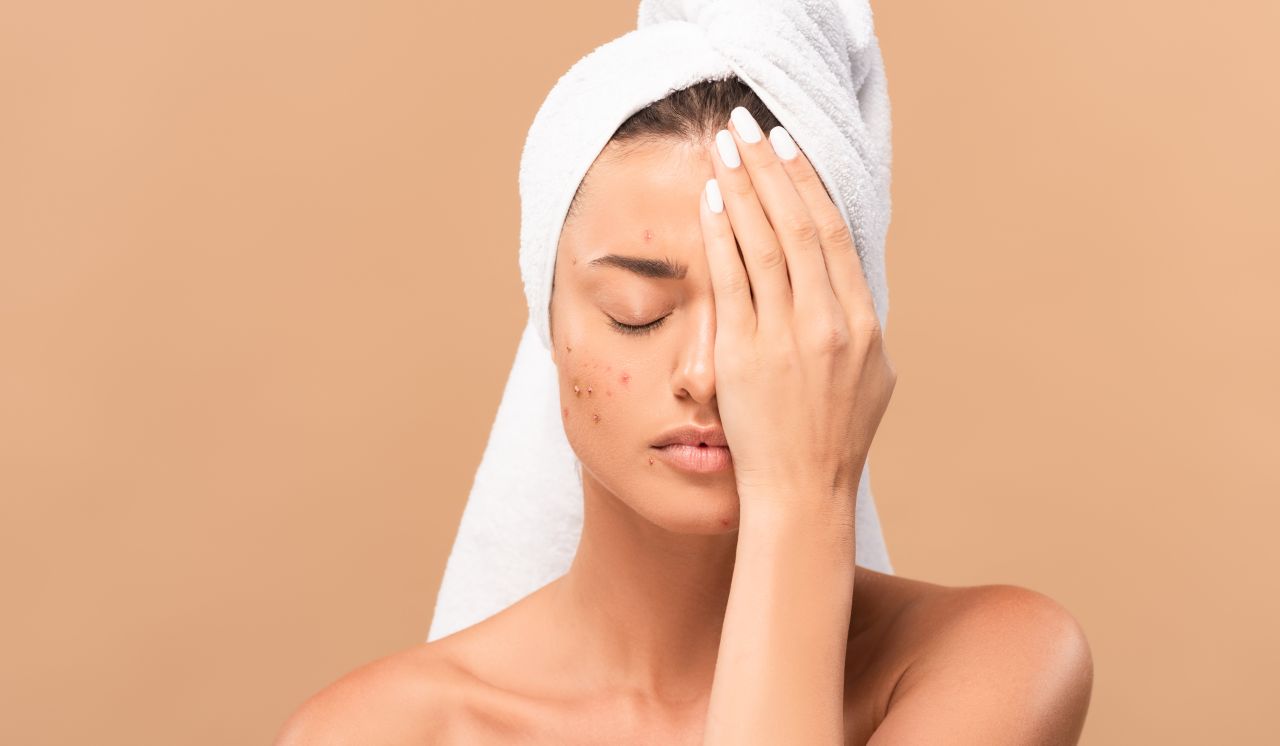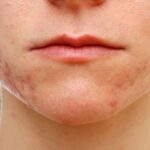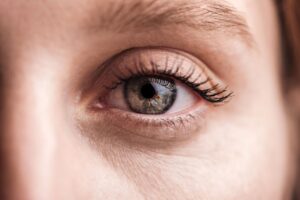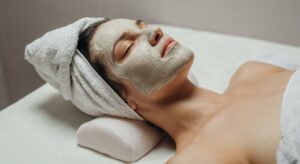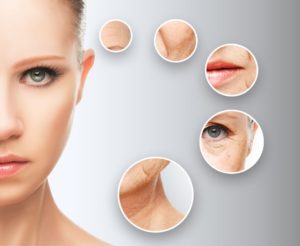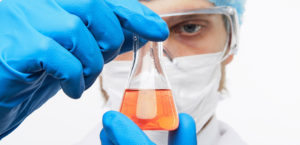Acne is one of the most frustrating parts of being an adolescent, and that frustration doubles when it’s still a problem in your 20s, 30s, or even 40s. Adult acne is something many people deal with, so know that you’re not alone.
Despite the comfort of knowing that others are also struggling with this stubborn skin issue, you probably don’t want to deal with it forever. The good news is that changing your diet could help to clear up your skin.
Acne-Fighting Nutrition Tips
Research has found that the food we eat may play a role in acne development. In a number of studies, participants consumed:
- Foods with a low glycemic index
- Fewer dairy products
- More omega-3 fatty acids
The results showed these three dietary changes reduced or prevented new pimples.
Effect of Healthy Food on Acne
Breakouts start around 12 years old for many people. This is the age when a specific hormone tied to acne increases; insulin-like growth factor 1 (IGF-1). This hormone boosts the production of sebum (oil from the oil glands), which can cause breakouts.
Certain foods can also increase IGF-1, which is why many adults continue to see pimples on their face and body. Their level of IGF-1 may already be elevated due to genetics. However, it makes the issue worse when they consume foods that increase these levels, resulting in even more breakouts.
What to Eat and Not to Eat
You now know foods may help prevent pimples, but what foods have a lower glycemic load?
- Sweet potatoes
- Some fruits
- Non-starchy vegetables
- Whole wheat bread
- Legumes
- Lentils
- Rolled or steel-cut oats
- Oat bran
- Muesli
- Lima beans
- All bran cereals (with no sugar added)
Foods to avoid because they have a high glycemic index include:
- White bread
- Sweetened cereals
- Instant oats
- Enriched pastas
- Short grain white rice
- Snack foods, such as pretzels, rice cakes, and popcorn
The other category of foods to avoid (or greatly reduce) is dairy products. For instance, milk, cheese, ice cream, and yogurt should be limited.
Omega-3 fatty acids are great for general health. Many experts recommend 250-500 mg of EPA and DHA a day. Adequate consumption of omega-3 fatty acids can help reduce risks for:
- Depression
- Anxiety
- Cancer
- Heart disease
If you haven’t paid much attention to the amount of omega-3 fatty acids you’re getting in your diet, you may want to consider it. Based on the research, it just might reduce your adult acne.
Aftermath of Breakouts
Scars can seem like a double whammy for many acne sufferers. If you have them, you know how damaging they can be not only to the skin but also to one’s confidence. The good news is that you don’t have to be stuck with scars forever. Fillers can help reduce their appearance. Click here to learn more about fillers for acne scars.
Get Dermal Fillers in Manhattan and Long Island
If you’re interested in dermal fillers, James Christian Cosmetics can help you. Call or text our 24/7 Cosmetic Concierge line at 917-860-3113 for an appointment.
James Christian Sardelli, RPA-C is located in Suffolk County and Nassau County, including Commack, Manhattan, Farmingdale, Westhamptoon Beach, Rockville Centre, Babylon Village, and Islip, New York.
*Always consult your doctor before changing your diet or exercise program. This post is for informational uses only and is not to be used as a substitute for seeking medical care and advice from a physician.
*Information in this article is not medical advice and may not be factually accurate. It is intended for entertainment purposes only. Consult with a physician before attempting any tips in this blog post and to get the most up to date factual data about any procedure or treatment.

